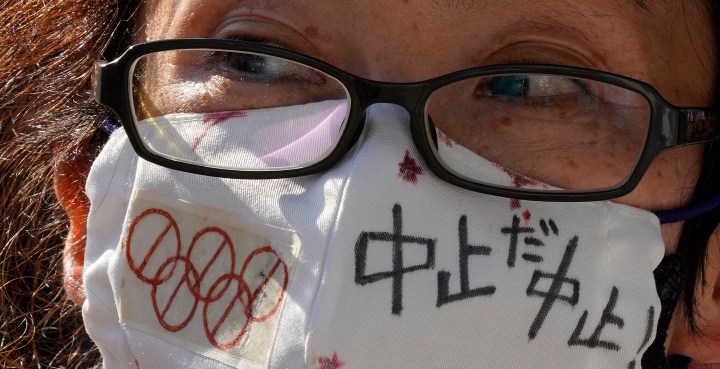MUG'S GAMES
Delayed and fanless Tokyo Olympics has come at great cost

The delayed 2020 Olympics has already come at great cost to the city and Japan as a whole. But the Covid-19 pandemic has also forced the Games to go fanless, adding to the cost of hosting sport’s biggest single gathering.
Despite public opposition in Japan over fears of new coronavirus surges, the Tokyo Olympic Games that were postponed in 2020 will get under way on 23 July, with spectators now barred from all events.
The delay and crowd restrictions on the Games, which will end on 8 August, have been expensive in various ways. Here are some areas where costs have grown, and where income that had been expected will not materialise.
Olympic costs
Organisers said in December 2020 that the entire cost of holding the Games would be about $15.4-billion (about R224-billion), including $2.8-billion for the unprecedented postponement from 2020. Since then, the projected bill for postponement has risen to $3-billion.
Organisers initially sold about 4.48 million tickets and the government had expected a tourism windfall, before first overseas visitors and then domestic spectators were ruled out.
Ticket revenues had initially been expected at about 90 billion yen ($815-million) but will now drop to virtually nothing.
Sponsors
More than 60 Japanese companies together paid a record of more than $3-billion to sponsor the Games. Sponsors paid another $200-million to extend contracts after the Olympics were postponed.
That does not include partnerships with Japanese companies Toyota, Bridgestone and Panasonic, and others such as South Korea’s Samsung, which through a separate programme for top-tier sponsors have separate deals with the International Olympic Committee (IOC) worth hundreds of millions of dollars.
Insurance
Although the cancellation scenario is looking less likely by the day, global insurers would face a hefty bill should that happen, with estimates running to a loss of up to $3-billion.
The IOC takes out about $800-million of protection for each summer Games, which covers most of the roughly $1-billion investment it makes in each host city. Organisers in Tokyo will have taken out a further policy, estimated at about $650-million.
Analysts with financial services firm Jefferies estimate the insured cost of the 2020 Olympics at $2-billion, including TV rights and sponsorship, plus $600-million for hospitality.
Media
Broadcaster NBCUniversal had reaped a record $1.25-billion in US national advertising spending for the Games before they were postponed in 2020 and has spent the past year trying to get sponsors to support them again this year, entertainment business magazine Variety reported.
NBCUniversal’s parent company, Comcast, agreed to pay $4.38-billion for US media rights to four Olympics from 2014 to 2020, it added.
Discovery Communications, the parent of television channel Eurosport, has agreed to pay €1.3-billion (about R22.3-billion) to screen the Olympics from 2018 to 2024 across Europe.
Hit to the economy
The Olympics were originally expected to be a huge tourist draw, but banning foreign spectators put paid to hopes of an early recovery in inbound tourism, which has been frozen since 2020.
In 2019, Japan hosted 31.9 million foreign visitors, who spent nearly 4.81 trillion yen ($44-billion; R640-billion). Numbers plunged 87% in 2020 to just 4.1 million, a 22-year low.
Though highly unlikely now, a full cancellation would mean lost stimulus of 1.8 trillion yen, or 0.33% of gross domestic product, the Nomura Research Institute said in a recent report.
But Nomura executive economist Takahide Kiuchi said that loss would pale in comparison with the economic hit from emergency curbs if the Games turned into a coronavirus superspreader event.
“If the [Olympic Games] trigger the spread of infections and necessitate another emergency declaration, then the economic loss would be much greater,” Kiuchi said. Reuters/DM
"Information pertaining to Covid-19, vaccines, how to control the spread of the virus and potential treatments is ever-changing. Under the South African Disaster Management Act Regulation 11(5)(c) it is prohibited to publish information through any medium with the intention to deceive people on government measures to address COVID-19. We are therefore disabling the comment section on this article in order to protect both the commenting member and ourselves from potential liability. Should you have additional information that you think we should know, please email [email protected]"






 Become an Insider
Become an Insider